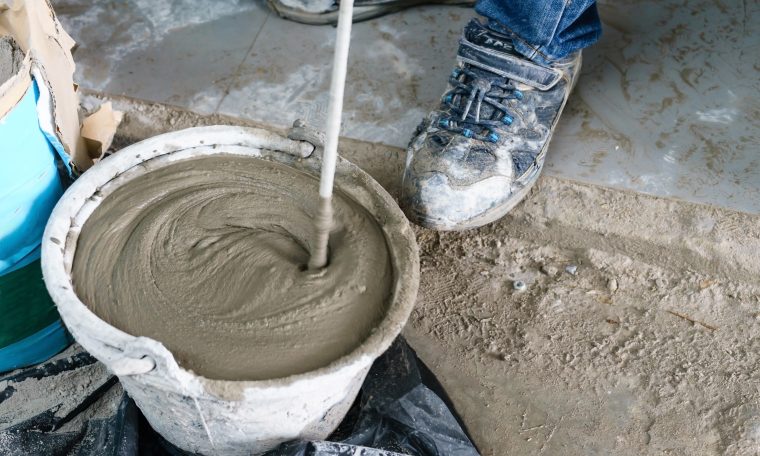
Choosing the right ready-mixed concrete is a crucial first step in any construction project. The variety of available options might seem overwhelming, but when equipped with the right knowledge, making an informed choice becomes far less daunting. Having a clear understanding of the different types of ready-mixed concrete can significantly improve the efficiency, durability, and overall success of your project.
This article guides you through this process, discussing the various types of ready-mixed concrete and how to match them with your construction needs. Remember, using appropriate materials is key to executing a flawless build.
Understanding Different Types of Ready-Mixed Concrete
Ready-mixed concrete comes in various types, each formulated for specific construction needs. Here are some common types:
Normal Strength Concrete
Normal strength concrete, known as NSC, is like the go-to buddy in construction. It’s got your back with strengths from 2,500 to 6,000 psi, perfect for everything from building foundations to smooth sidewalks. It’s the Goldilocks of concrete, just right for all-around use, making sure your structures stay tough and steady. Whether it’s homes or big buildings, NSC brings that essential stability needed for solid, long-lasting construction.
High-Strength Concrete
High-strength concrete, or HSC, packs a punch in the construction world, offering exceptional durability and robustness. Boasting compressive strengths surpassing 6,000 psi, HSC is the heavyweight champion for heavy-duty projects like towering skyscrapers or industrial structures. Its unmatched strength makes it the top choice for applications demanding exceptional structural support and resilience. Whether for challenging environments or massive infrastructures, high-strength concrete delivers the power needed for enduring and resilient construction projects.
Lightweight Concrete
Another type of ready-mixed concrete is lightweight concrete, bringing a feather-light touch to construction, perfect for projects where weight matters. With its reduced density achieved through clever formulations using lightweight aggregates or air-entraining agents, this concrete type floats above the rest. It’s a top pick for applications where less weight means better performance, such as in precast elements or structures where minimizing loads is crucial. Whether crafting efficient buildings or optimizing structures, lightweight concrete proves its worth by offering strength without the heavy burden.
Determining Your Construction Needs
It’s essential to accurately determine your construction needs before deciding on the type of ready-mixed concrete to use. The project size and complexity play a significant role in this process. For example, a small home project might do perfectly well with standard ready-mix concrete, while large-scale builds might benefit more from volumetric mixed concrete.
Similarly, you’ll need to consider the environmental conditions surrounding your project. Factors such as weather conditions and construction site location can influence the effectiveness of different types of concrete. Evaluating these aspects can help ensure you select the most suitable concrete type.
Matching Concrete Types to Your Needs
Now that you understand your needs, it’s about matching these with the right type of ready-mixed concrete. Each kind of concrete has its unique attributes that make it ideal for specific projects. For example, concrete strength might be a top priority for high-traffic areas, while setting time and workability might be more crucial for intricate architectural details. Further, considering factors like durability and weather resistance can dictate the best concrete choice.
If your construction site has harsh weather conditions, a more durable and resistant concrete variety would be favorable. The aim is to choose a concrete that aligns seamlessly with your project’s specific requirements.
Top Factors to Consider When Choosing Ready-Mix Concrete
As you approach the decision-making process, there are certain factors to consider when choosing the ready-mix concrete for your project. Here are the top ones to consider:
Type of Project
Whether it’s a foundational construction, pavement laying, structural elements, or decorative work, each demands a tailored concrete mix. Factors like load-bearing capacity, environmental exposure, and finishing requirements influence the choice.
Understanding the project type ensures selecting a concrete mix with the precise strength, durability, and composition to meet the project’s unique demands, ensuring optimal performance and longevity.
Strength and Durability
Another factor to be considered would be the strength and durability of the ready-mixed concrete. Assessing the project’s load-bearing needs, weather conditions, and potential chemical exposure determines the required concrete strength. Factors like compressive strength and resistance against environmental elements shape the choice.
Opting for a concrete mix with the right balance of strength and durability ensures longevity and reliability, safeguarding against structural issues and ensuring the project’s resilience over time.
Mix Design
Mix design also plays an important role in selecting ready-mixed concrete. Tailoring the mix composition—proportioning cement, aggregates, water, and additives—aligns it with specific project requirements. Whether it’s achieving desired strength, enhancing workability, or addressing environmental factors, the right mix design ensures optimal performance. Customizing the blend to meet project specifications guarantees the desired concrete characteristics, be it for foundations, structural elements, pavements, or decorative work. Getting the mix design right ensures a durable, high-quality concrete solution that meets the project’s exact needs.
Aggregate Quality
The size, shape, and quality of aggregates significantly impact the concrete’s strength and durability. Evaluating the aggregates’ grading, composition, and adherence to industry standards ensures optimal performance. High-quality aggregates tailored to the project’s requirements promise enhanced structural integrity and longevity.
As top-notch aggregate quality in the concrete mix are prioritized, projects then gain the stability and reliability necessary to withstand varying environmental conditions, guaranteeing a robust and enduring construction solution.
Admixtures
Admixtures are additives, like accelerators, retarders, or plasticizers, that fine-tune the concrete’s properties, enhancing workability, strength, and durability – thus an important factor to consider as you choose ready-mixed concrete. By incorporating the right admixtures, tailored to the project’s needs, concrete performance can be optimized for various conditions and timelines.
Whether it’s adjusting curing times, improving durability against harsh environments, or enhancing fluidity for intricate designs, choosing the appropriate admixtures ensures a bespoke concrete solution that meets the exact requirements of the construction project, ensuring efficiency and reliability.
Key Takeaway
The importance of choosing the right ready-mixed concrete for your construction project cannot be overlooked. By understanding the different concrete types, accurately determining your construction needs, and carefully considering various influential factors, you can make an informed choice. This process, while seemingly complex, offers significant benefits in terms of the efficiency, durability, and overall success of your project. Don’t hesitate to seek professional advice to ensure you get it right. After all, a successful construction project begins with the right materials, and ready-mixed concrete is undoubtedly key.



